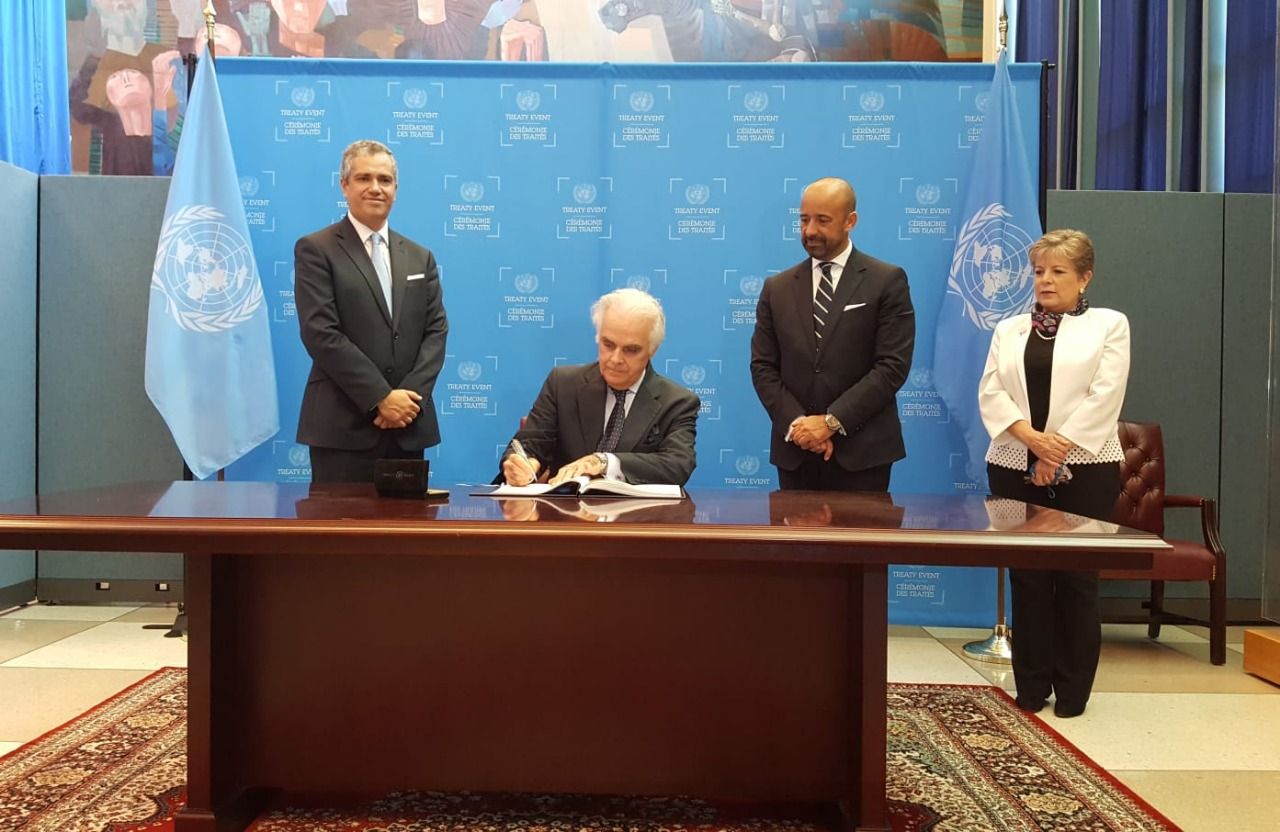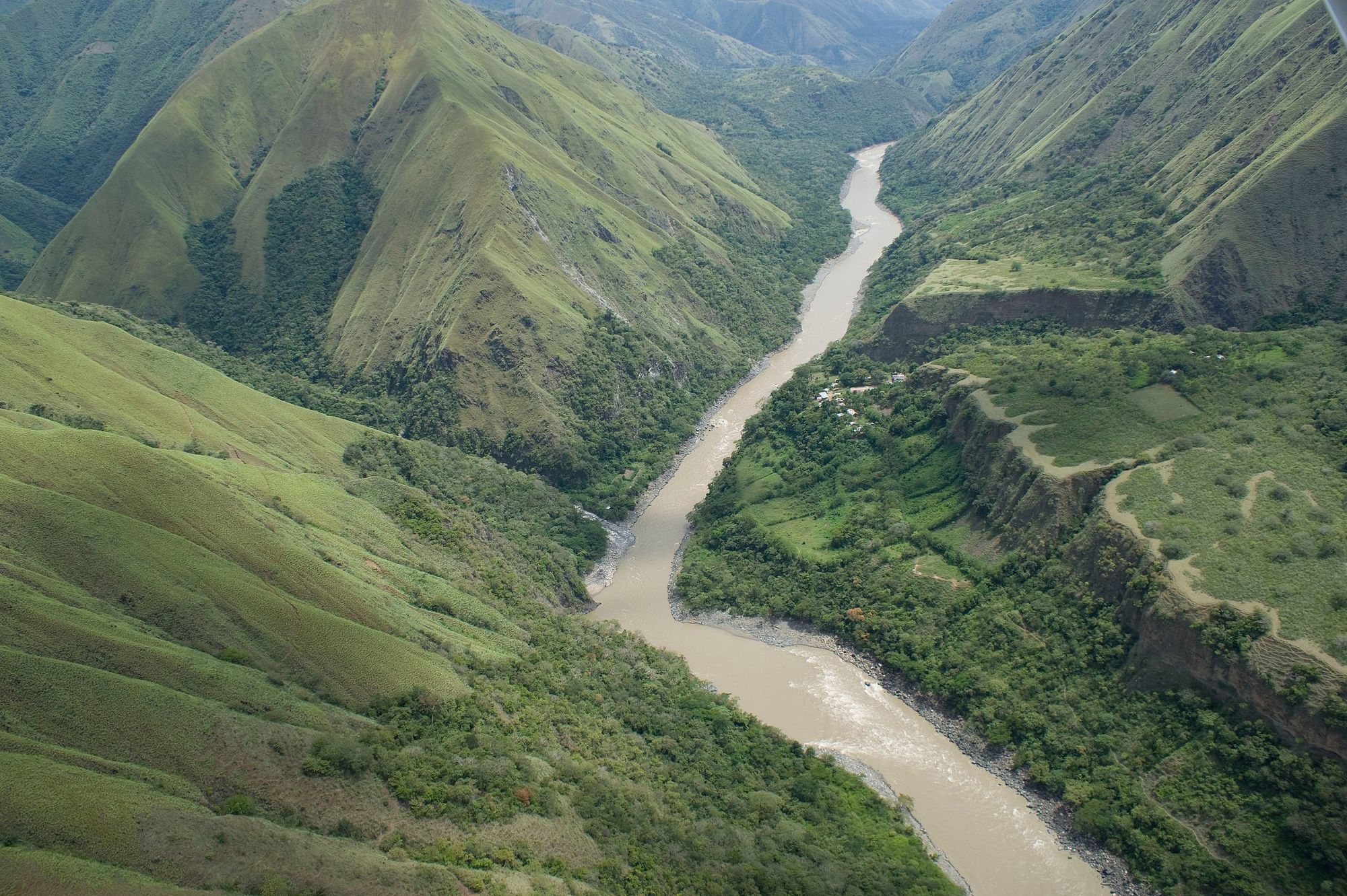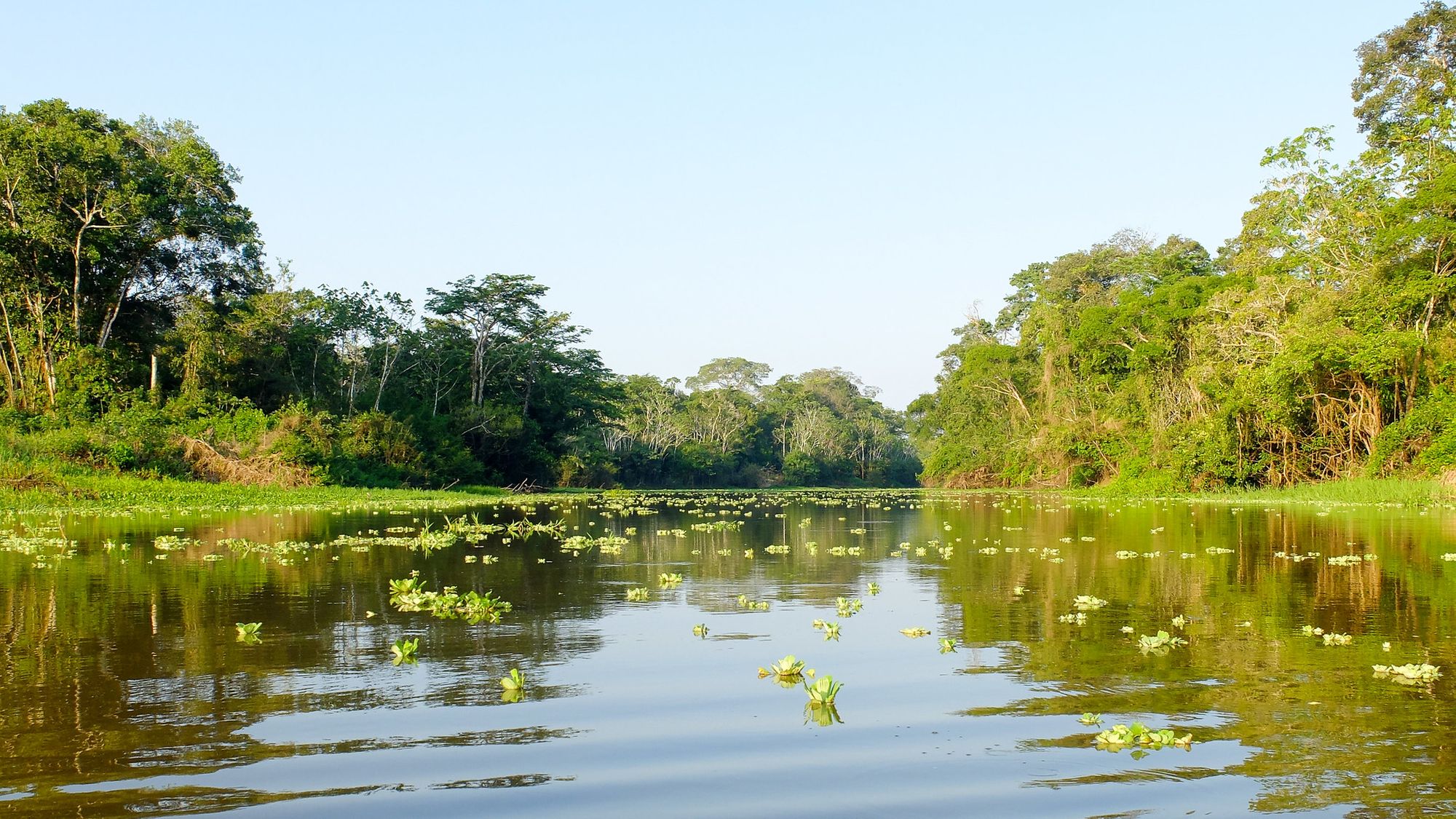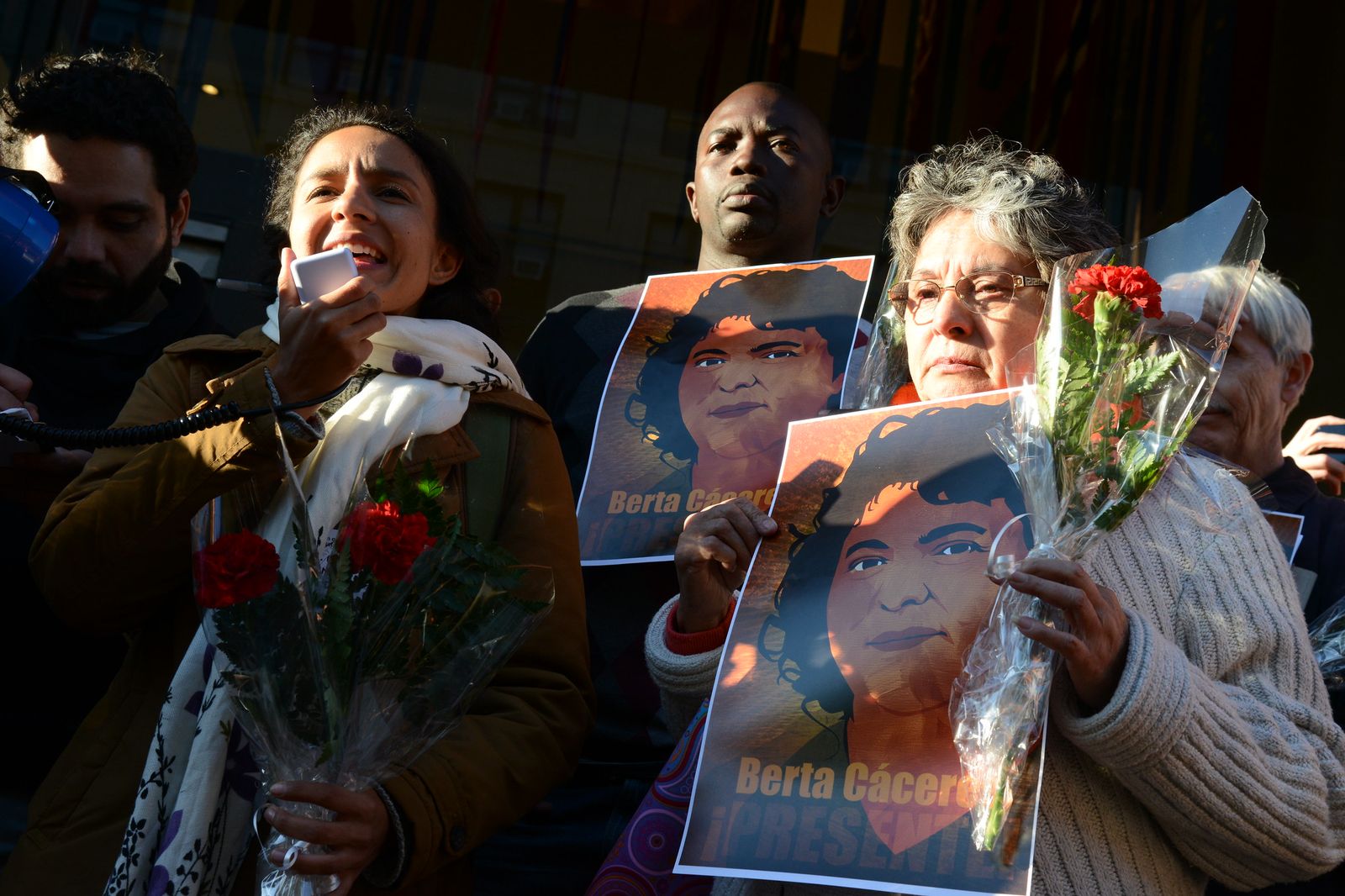In 1988, Chico Mendes gained an international following as a result of his efforts to protect the Amazon Rainforest from deforestation. But politically connected ranchers in his home village of Xapuri did not want him to remain internationally popular for long, and they took drastic measures. On December 22, two armed men lay in wait as Mendes stepped outside his four-room cottage to use the toilet. When he stepped outside, they riddled him with 60 bullets.
Mendes died on the spot.
Unfortunately, the international outcry after Mendes’ death did not end murders against environmental activists in Latin America, most of which were carried out by ranchers and miners who would benefit from fewer environmental protections. In 2016, gunmen linked to a dam company in Honduras murdered Berta Cáceres, an indigenous woman who had led the fight against the dam.
While this is a problem worldwide, Latin America is a hotbed for violence against environmental defenders. In 2019, 148 environmental defenders died in Latin America, making up more than two-thirds of the world’s total. That number had only grown from 2018, when 84 died in the region. Although firm data on 2020 deaths has not yet become available, it seems likely that it will become the worst year for environmental defenders on record. Overall, Latin America’s wealth of natural resources creates conflict between environmental defenders and businesses that wish to exploit these resources. Latin America’s “ plague of state weakness” then allows businesses to kill environmental defenders and get away with it.
The Escazú Agreement aims to change that horrid record on environmental rights. Signed in March 2018, the agreement includes provisions that would nominally protect citizens’ rights to a clean environment, ensure access to environmental information, and prompt states to actually secure justice for slain environmental defenders. The treaty finally entered into force on April 22, 2021, 90 days after Mexico became the 11th country to ratify it. Environmentalists and human rights groups hailed the treaty. After all, it is the world’s first treaty to explicitly protect environmental defenders.
While the Escazú Agreement has a powerful normative precedent for protecting environmental defenders, its practical effects will nonetheless fall short. After all, the two biggest sites of activist deaths in Latin America, Colombia and Brazil, have not yet ratified the treaty, and Chile has rejected it outright. In all, the Escazú Agreement reflects both the promise of transnational diplomacy and the cold, harsh reality that anti-environmentalists still hold sway in much of Latin America.
From Rio to Escazú
Initially, the Escazú Agreement grew out of Principle 10 from the 1992 Rio Declaration, which concerned transparency, citizen participation, and access to judicial proceedings. At the 2012 United Nations Conference on Sustainable Development (generally referred to as Rio+20 for its aim to build upon that declaration), nine Latin American countries demanded an agreement to put Principle 10 into practice. Surprisingly, Latin American leaders agreed, and the six-year path towards the Escazú Agreement began.
It had its twists and turns as diplomats trekked across the region, participating in a series of “focal point” meetings and working groups. Negotiators first adopted a “road map,” followed by a document called the “Lima Vision,” and then a document called the “San José Points.” Finally, in November 2014, the 24 countries involved finally agreed on the “Santiago Decision” that formally spelled out their intent to draft a binding regional instrument to implement the San José Points. Notably, nine Latin American countries never participated in these preliminary negotiations, making the scope of any potential agreement limited from the beginning.

Negotiations continued for almost four more years as diplomats once again hopscotched across the region. At one point, the famous clause that ensured protection for environmental defenders almost did not appear in the document, but the worldwide media coverage that followed Berta Cáceres’ murder in 2016 prompted its inclusion. Unusually, civil society groups could actively participate in the negotiations instead of attempting to influence negotiations from the sidelines, and they pushed to make the treaty a binding agreement.
Civil society got its wish: the negotiators eventually hammered out a legally binding agreement, a rarity in worldwide environmental governance. In March 2018, all 24 countries involved in the drafting process ultimately signed the agreement in the Costa Rican city of Escazú. Civil society groups celebrated the agreement’s signature, recognizing its potential to remedy long-standing problems concerning environmental justice and environmental democracy in Latin America. Despite setbacks during that process, civil society groups nonetheless influenced the agreement to make it stronger and more comprehensive. Above all, the Escazú Agreement shows that enacting new measures to protect the environment on a regional scale is possible.
“A Much Bigger Umbrella”
Even though the Escazú Agreement took a winding road from conception to ratification, it nonetheless addresses the dangers that environmental defenders face in a concrete and specific matter. The Escazú Agreement’s three main provisions concern access to information, public participation, and justice for environmental defenders. Most importantly, the Agreement’s Article 9 is the first explicit clause protecting environmental defenders in worldwide jurisprudence. It obligates its signatories to “prevent, investigate, and punish attacks” and create a safe environment for environmental defenders while recognizing the links between environmental justice and human rights.
For the most part, the Agreement does not have the ambiguous phraseology or legal loopholes that often characterize international agreements. Instead, it uses clear, simple language (with the verb “shall” common in active clauses) and gives specifics in sections where countries could interpret concepts in the least restrictive way possible. For instance, while the Agreement’s provision on justice does not explicitly define what it means by that term, it does give specific examples such as reducing barriers to lawsuits, broadening legal definitions of standing, and streamlining burden of proof in environmental cases. That being said, the same article does give some carve-outs, providing less environmentally inclined administrations room to implement only the bare minimum.
Nonetheless, civil society and the international community have largely praised the agreement. “The Escazú agreement offers hope for environmental defenders that are so often targeted because of their activism in defense of the right to a healthy environment,” Marcos Orellana, a UN rapporteur on human rights, told environmental news site Mongabay. “This is a human rights agreement” more than an environmental agreement, said Mexican environmental activist Tomás Severino, “and that makes a big difference. Escazú is a much bigger umbrella.”
Other civil society leaders broached a broader topic: the idea of “environmental democracy.” As Natalia Gómez Peña of the international NGO Civicus put it, “The Escazú Agreement brings hope to the region to change those patterns of lack of participation and conflict” by giving everyday citizens the right to participate in more environmental decisions rather than handing those decisions to corporations.
“Word Games” and “Deceptive Advertisements”
Despite the Escazú Agreement’s trailblazing nature, it has not been met with unanimous support. Indeed, only 12 of the 24 countries at the negotiating table have ratified the agreement, while Chile and Peru have already rejected it. Reasons range from a general antipathy towards the environment to economic concerns to issues of national sovereignty.
In Brazil, the largest country in Latin America, the anti-environmental administration of Jair Bolsonaro has stonewalled the Agreement. It must send the text to Congress for ratification (and has no legal obstacles blocking it from doing so), yet Bolsonaro has done nothing. “The agreement combats exactly what the government promotes,” an environmental researcher told the British-run publication Diálogo Chino, referring to Bolsonaro’s policies that promote greater Amazon deforestation and his attacks on civil society.
Brazil’s absence from Escazú means that its provisions will not apply in the country that most needs them. Brazil saw 24 murders of environmental activists in 2019, more than ten percent of the world’s total. Furthermore, Brazil desperately needs a counterweight to Bolsonaro’s policies in a country that saw more than 2,500 square kilometers deforested in 2021’s first five months, skyrocketing from previous years.
Opposition in other countries has come from more mundane reasons. Explicit opposition in Colombia has centered around two key concerns. Unions have opposed the project on the grounds that it would derail judicial security and negatively impact infrastructure projects, while other criticisms have baselessly alleged that the agreement would somehow cede Colombian sovereignty to “external actors.” However, many civil society activists believe that the government has stonewalled the project because it does not want to release environmental data that would make it look bad. “Many forces fear transparency and lobby for disinformation,” said the director of Colombia’s Environmental Movement.

That rhetoric led to President Iván Duque’s opposition to the accord, but protests that wracked the country in late 2020 forced him to change his tune. However, dithering from the country’s Congress on how to proceed virtually amidst the pandemic has delayed most legislation, including the ratification of Escazú. With 64 environmental defenders murdered in 2019 (and 130 environmental conflicts raging across the country), ratification would take the country a step forward in solving these problems. As environmental publication Mongabay put it, “The Escazú Agreement would put Colombia’s house in order, establish minimum rules to strengthen environmental justice, and create a new democratic pillar that seeks to guarantee the protection of [environmental] leaders.”
In Chile, the rejection of Escazú came as a slap in the face to advocates, especially considering that Michelle Bachelet’s administration had actively advocated for the treaty. Nonetheless, the conservative Sebastián Piñera administration opposed the treaty. For one, the Spanish newspaper La Vanguardia viewed this opposition as part of a broader “extractive and neoliberal development model.” Additionally, the administration bizarrely claimed that signing the treaty would somehow cede ground to Bolivia in an international legal dispute over access to the Pacific Ocean and that it would violate legal equality by elevating environmental defense groups over other human rights groups.
Supporters of Escazú hit back. The Greenpeace director in Chile called the arguments against the treaty “deceptive advertisements,” and Chile’s Human Rights Commission warned that the decision put business interests over human rights. For starters, the flip-flop will impose reputational costs on Chile’s international standing. Beyond that, campaigners had hoped that the agreement would have increased public participation in Chile’s water advisory board and produced a more lasting situation to the country’s ongoing water crisis. In this view, the agreement’s rejection will hinder an equitable solution to that issue.
Similar to arguments in Chile, arguments against the Escazú Agreement in Peru saw both business leaders and congresspeople complaining about Peru’s loss of sovereignty under the agreement. A joint press release from several Peruvian business organizations argued (with somewhat strained reasoning) that the treaty would “indubitably affect investment” due to “judicial instability” and “the abdication of [Peruvian] national sovereignty since Peru would be exposed to international normative frameworks.” Congresswoman Martha Chávez pointed to Chile’s rejection and wondered if the country’s copper mines in particular would lose ground to unconstrained Chilean firms.
Those arguments evidently proved persuasive—in October 2020, the measure to ratify the Escazú Agreement failed to even get out of committee. However, political analyst Karen López Tello viewed the winning arguments as “only word games.” As she told BBC World, those arguments were essentially smoke screens for businesses “that are still used to the lack of transparency and accountability… much less public participation and access to justice.” Unfortunately, Peru has become one of the most dangerous jurisdictions for environmental defenders (with at least five deaths during the pandemic so far), and rejecting Escazú will only cement that descending spiral.
Moving Forward from the Status Quo
As the cross-regional opposition to the Escazú Agreement shows, anti-environmental forces still maintain high levels of political power in Latin America. Across the region, these politicians and business entities have blocked or stonewalled efforts to ratify this groundbreaking agreement. In the short run, this means that the Escazú Agreement’s provisions will not come into effect in more than half of Latin America, weakening its effect. In the long run, it signals poor prospects for international cooperation on climate change in the region, especially if specious arguments about sovereignty continue to weigh on leaders’ minds as they move forward.
It will likely take a combination of civil society and electoral pressure to get slow-moving countries to ratify the accord. This approach seems likely to work in Colombia: civil society pressure forced Duque to change course on sending it to congress, and it has not stopped despite numerous delays. For instance, dozens of universities and civil society groups such as the World Wildlife Foundation banded together to form the Alliance for the Escazú Agreement. But in other countries, voters who want to ratify their agreement must signal their displeasure at the ballot box. Change looks unlikely in Brazil until Bolsonaro loses power, and efforts to ratify Escazú in Chile will also need another administration with a more sympathetic legislature.

But the focus on the movements against the Escazú Agreement should not detract from the challenges that it will certainly face after coming into force in the countries that have already ratified it. Indeed, the countries implementing the agreement will need to take it seriously rather than literally and beef up their efforts to include citizens in the environmental decision-making process, improve access to information, and protect environmental defenders.
Again, civil society organizations will certainly prove essential in holding governments accountable to the terms of the accords. “We need to make sure there is enforcement capacity for those policies and that the guarantee of protection for environmental defenders is implemented in practice,” Rubens Born, who participated in the agreement’s drafting as a civil society representative, told climate advocacy organization 350.org. “We need to push domestic interpretations of the agreement to recognise that it’s not just humans we are protecting, but the forests, animals, waterways, climate and land too.” Hopefully, the Escazú Agreement will serve as precedent and encouragement for other regions to adopt sweeping measures to protect the environment—and those who defend it.
Featured image: Bertha Cáceres' daughter speaks at a memorial for her mother in Honduras. Image credit Comisión Interamericana de Derechos Humanos, CC-BY-2.0, accessed via Flickr.




